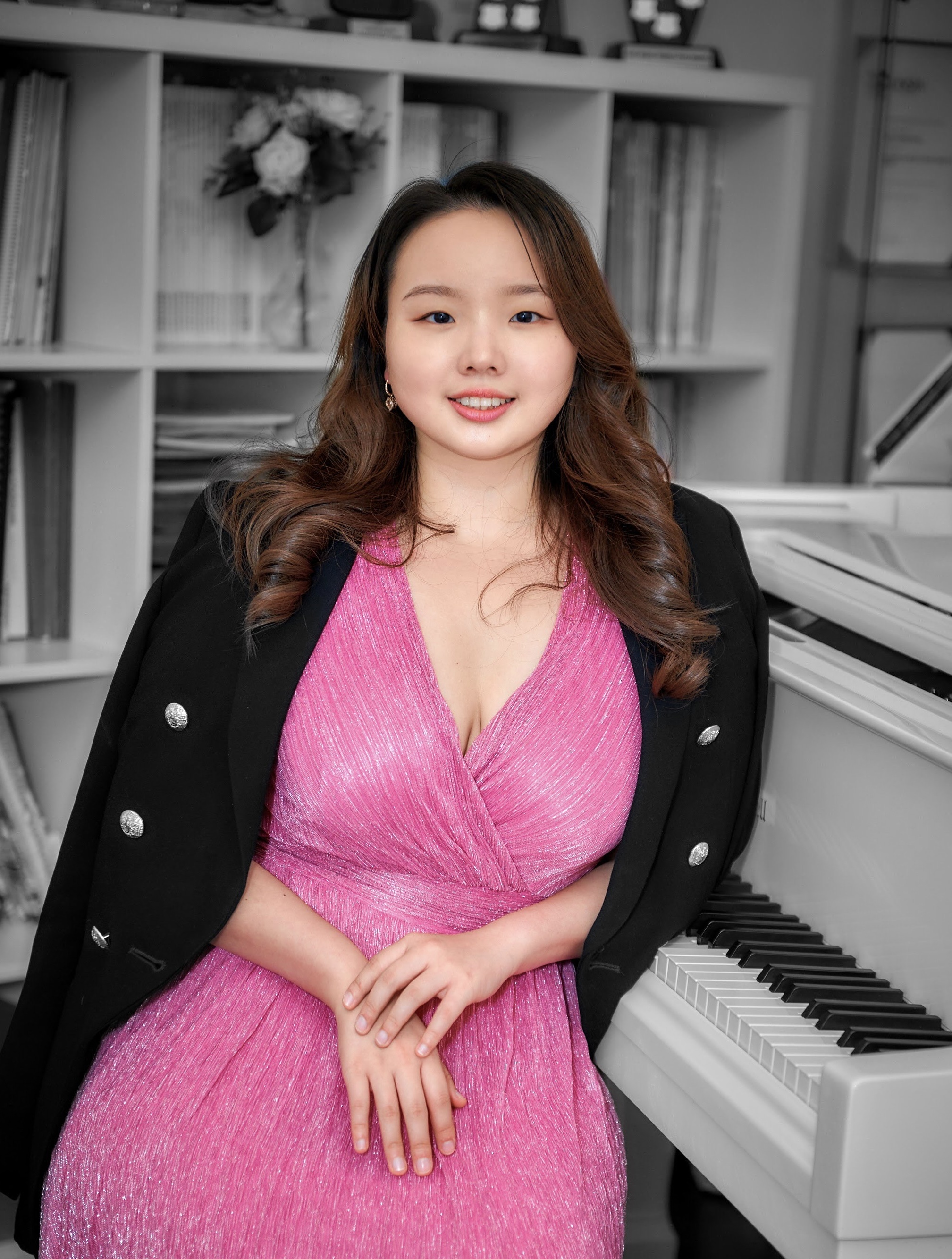Music has always been a journey of passion and discovery for Celine Kang, this year’s Concerto Competition winner. In November, Celine will take the stage with the UNSW Orchestra, performing one of her all-time favourite pieces, Beethoven’s Piano Concerto No. 3. A versatile musician, pianist, oboist, and educator, Celine’s musical path is as vibrant and dynamic as her performances.
In her recent interview, she shared insights into her musical journey, preparation process, and advice for aspiring musicians.
- Could you introduce yourself and tell us about your journey with music so far?
I often describe myself as a 'chameleon’, as I adapt to different roles and environments—whether as a musician, performer, educator, uni-student businesswoman, or Peaceful Unification Advisory Council member supporting international peace. My lifelong passion for music has led me from winning international competitions and performing at prestigious venues like Carnegie Hall and the Sydney Opera House, to shaping the next generation of musicians through my teaching at The King’s School, MLC School, Meriden, and leading my own tuition business, GNT Academy to win the Australian Small Business Champion Music Tuition Award 2024. I am also studying Bachelor of Music (Hons) and Bachelor of Education (Secondary) here at UNSW.
- How did you choose the concerto you'll be performing, and what drew you to this specific piece?
My former teacher, Gerard Willems AM, was the first Australian to record the complete Beethoven sonatas, and his deep passion for Beethoven’s music greatly influenced me. Beethoven's 3rd Piano Concerto, in particular, holds a special place in my heart, as it was the piece that introduced me to the world of piano concertos—starting with my first performance of the first movement with the Ku-ring-gai Philharmonic Orchestra around 9 years ago. As part of my honours project this year, I planned to perform this concerto for my honours recital and it felt only right to audition for the concerto competition with this iconic piece.
- Can you share what the preparation process was like for the auditions? Were there any challenges you faced, and how did you overcome them?
The overall preparation process was incredibly rewarding! I didn’t just focus on practising the solo piano part but also spent great time in the orchestral score to truly understand the composer’s intentions and the music’s overall flow. One challenge during the audition was performing without the orchestra or a second pianist— I had to resist the urge to fill the silence by singing, humming or playing, and instead imagined the sound in my head. Another challenge was choosing which sections to perform within the time limit, as I was deeply connected to all three movements of the concerto.
- What aspects of the concerto are you most excited about bringing to life in your performance?
I’m most excited to bring out the beautiful and unique chemistry between the piano, UNSW orchestra, and Steven, the conductor! Additionally, I’m excited to share a personal touch in the Cadenza, where I’ve incorporated a little of my own composition using the main themes of the concerto alongside Beethoven’s original cadenza.
- Who are some of the musicians or composers that inspire you, and how have they influenced your musical approach?
If I listed all my musical influences, it would easily exceed a thesis word limit! However, my greatest inspiration comes from the incredible mentors I’ve had the privilege of working with. My current teacher, Dr. Bernadette Harvey has shaped me with her passion, warmth, and unwavering support, helping me grow into a versatile performer and grow the love of Australian music. Gerard Willems AO, my former teacher, sparked the idea of creating my own cadenza, which has been a transformative experience, and Dr. Sonya Lifschitz, who have encouraged me to think beyond traditional boundaries, guiding me to become not just a performer, but an artist-researcher. Also, I have had the privilege in working with many esteemed musicians of our current time, including Charles Owen, Tamara-Anna Cislowska, Margaret Hair, Robert MacDonald, Paul Rickard-Ford, Michael Kieran Harvey, Clemens Leske, Jeffrey Cohen, Kevin Kenner, Olivier Gardon, Joyce Yang and Soo-Jung Shin - each one contributing their own unique colours, helping me to create my own.
- How do you manage balancing your studies and practice time? Do you have any time management tips for other student-musicians?
I'm still working on finding the right balance myself, and while I set priorities and plan accordingly, things don’t always go as planned. What I’ve learned from experience is that it's okay not to have the perfect balance - I wonder ‘can there even be a perfect balance?’ A tip I can share though, is to treat your practice time as more of a healing moment, where you simply enjoy making music. For me, practice is my long-awaited time, and because I love it so much, it keeps me energised and motivated for everything else, like studies and work.
- What advice would you give to fellow students who are pursuing music, especially those who might audition for future concerto competitions?
My decision to study at UNSW was driven by the incredible depth of creativity, freedom, and endless opportunities available, such as this concerto audition and my advice is to actively seek out these opportunities and take part in as many as you can! I first signed up for the concerto competition in 2020, but it was cancelled due to COVID—so don’t miss your chance if you are given one! Also, don’t be shy and get to know your fellow musicians, tutors, and lecturers—they are your greatest assets!
Catch Celine Kang’s performance with UNSW Orchestra on Friday, 15 November 2024, 7pm at Sir John Clancy Auditorium.
